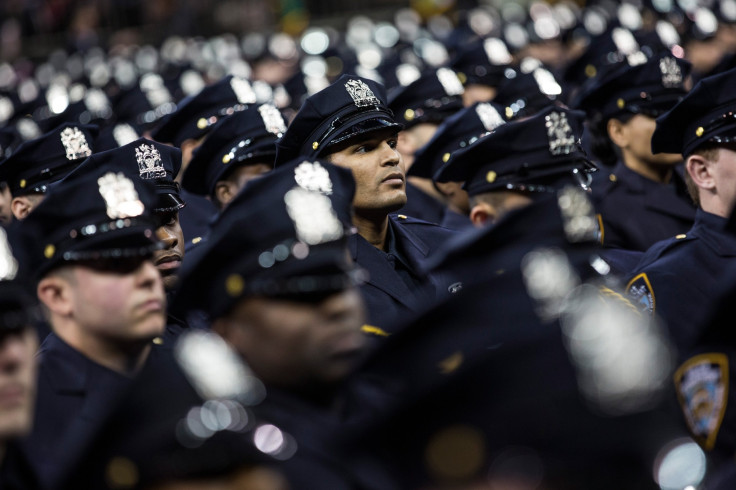Police Shooting Cases 2015: Prosecutors Cleared Majority Of Officers Who Killed People This Year, Report Shows

The vast majority of U.S. police officers who killed someone in 2015 were cleared of wrongdoing by local prosecutors and are unlikely to face repercussions, according to a Guardian analysis of more than 200 police-involved homicide cases. The analysis, published Thursday, found that district attorneys helped to clear officers (whom they typically work alongside) 217 times. That’s approximately 85 percent of all police killings this year.
In recent weeks, law enforcement officials were cleared of wrongdoing in higher-profile cases in Texas and Ohio, even amid calls for reform of the criminal justice system from activists and the White House. The policing task force created by President Barack Obama in May recommended that city and county level district attorneys allow special prosecutors to take over investigations into killings by local police officers, in order to build “mutual trust between community and law enforcement.”
#NYC: Moment of silence at #SandraBland vigil in #UnionSquare. #BlackLivesMatter #SayHerName pic.twitter.com/Cj9YcKJZDB
— Ash J (@AshAgony) December 31, 2015Activists this week decried a grand jury decision not to indict the two Ohio officers involved in the death of Tamir Rice, a 12-year-old black boy fatally shot carrying a realistic toy gun last year in a Cleveland park. The prosecutor in that case, Tim McGinty of Cuyahoga County, was criticized by the boy’s family for manipulating the grand jury process, they alleged, to ensure jurors would not indicte Officers Timothy Loehmann and Frank Garmback. Last week, a grand jury declined to file charges against jailers in Waller County, Texas, following the reported suicided death of Sandra Bland, a 28-year-old black woman jailed in July after a routine traffic stop escalated to her arrest.
An independent prosecutor assigned to Bland’s case said a grand jury would meet in January to consider charges against Brian Encinia, the officer who pulled the woman over and threatened her with a Taser gun. But families of police-killed victims have come to fret over the grand jury process, after a string of high-profile cases last year resulted in non-indictments for the involved officers, including the deaths of Michael Brown in Ferguson, Missouri, and Eric Garner in Staten Island, New York.
Among the findings in the Guardian’s analysis, district attorneys decline to prosecute cases between 1 percent and 10 percent of the time when civilians killed someone, compared to their declining to prosecute police officers in homicide cases more than 50 percent of the time. Of the killings by police that were ruled justifiable homicide, only 12.5 percent were handled by a completely independent party. Two-thirds of the 18 police-involved killing cases prosecuted in 2015 were filed by the prosecutors themselves, in lieu of a grand jury, according to the Guardian.
“Prosecutors work with police day in, day out, and typically they’re reluctant to criticize them or investigate them,” Samuel Walker, professor emeritus of criminology and criminal justice at the University of Nebraska in Omaha, told the Guardian. “A major change in our standard legal practice, and the structure of our criminal justice system, is required.”
© Copyright IBTimes 2025. All rights reserved.






















